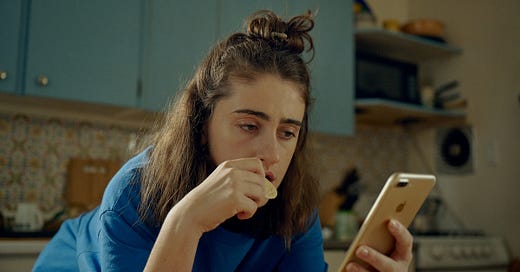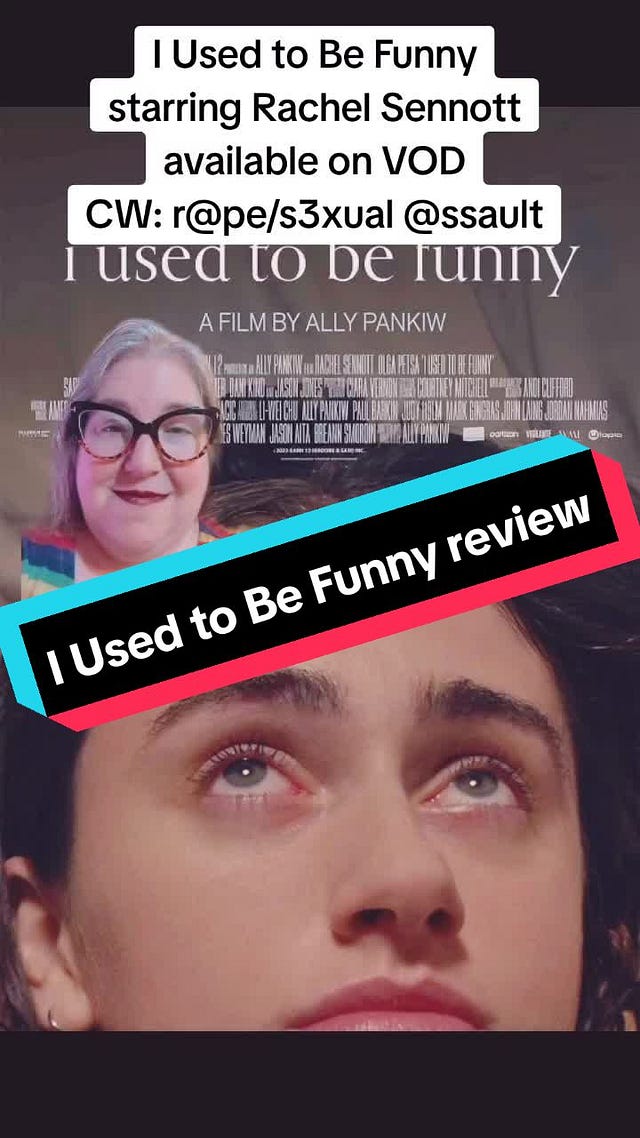I Used to Be Funny balances humor and trauma beautifully
Streaming Movie Review - VOD - Drama/Comedy
Content warning: This film and review include depictions/discussion of sexual assault and rape. If you are the victim of sexual assault or rape, help is available to you at the National Sexual Assault Hotline: 1-800-656-4673.
I love it when comedians star in dramatic films. Robin Williams in “Dead Poets Society.” Jim Carrey in “The Truman Show.” Will Farrell in “Stranger Than Fiction.” I love all of these movies. With humor often being categorized as tragedy plus time, I think it’s fascinating to see people known for comedy being cast in the tragic portion of a story. Rachel Sennott is a wildly funny comedian right now, which is why I was interested in watching “I Used to Be Funny” by writer and director Ally Pankiw, currently available on VOD.
Sam (Rachel Sennott) is living with her friends Paige (Sabrina Jalees) and Philip (Caleb Hearon), barely functioning. Through flashbacks, we discover that to supplement her meager income as a comedian, she worked as a nanny to a young woman named Brooke (Olga Petsa). With her sister in the hospital dying, Brooke’s aunt Jill (Dani Kind) introduces Sam to Cameron (Jason Jones), a police officer who works too much to avoid dealing with his feelings about his wife’s illness and his daughter’s sadness. Now, as Sam searches for a missing Brooke, the two of them must sort through the tragedy that led them to this moment.
This was a tremendously well-thought-out movie. Any time a film uses time jumps, it runs the risk of being confusing or hackneyed, but Pankiw demonstrates a deft hand, showing us, through flashbacks, the complete story of one woman’s difficulty in piecing her life back together after an assault.
The cast does an exceptional job of bringing this film to life. Jones does an admirable job of displaying just enough likability mixed with menace to make us wary of him without hating him. Petsa gives a beautiful performance as a young woman struggling to make sense of the world while losing her mother. Sennott, however, is an absolute standout in this movie. She essentially portrays two characters - the woman before the assault and the woman after. What is impressive is her ability to keep this as a unified character while absolutely having a noticeable shift.
The script is smart and funny while never making light of the subject matter of sexual assault and rape. It also does an exceptional job of showing how a young woman might use humor to diffuse an uncomfortable experience with men, only to have that be used as an invitation to something more violating. There is one scene where Sam is sitting on the porch with Cameron and two of his police buddies, and the tension is both incredibly apparent and nonexistent at the same time. It is a truly impressive bit of writing and performing.
What sets this film apart from other movies that deal with this topic is to show how far-reaching this kind of violation is. Not just for the abuser and the victim but for those in their orbit. The boyfriend who didn’t do anything wrong but who gets dumped. The daughter who loses a parent. The friends who help shoulder the weight of their friend’s pain. “I Used to Be Funny” keeps the victim at the center, but shows the ripples, and that makes it a film worth watching.
This review originally appeared in The Dominion Post on June 22, 2024.








